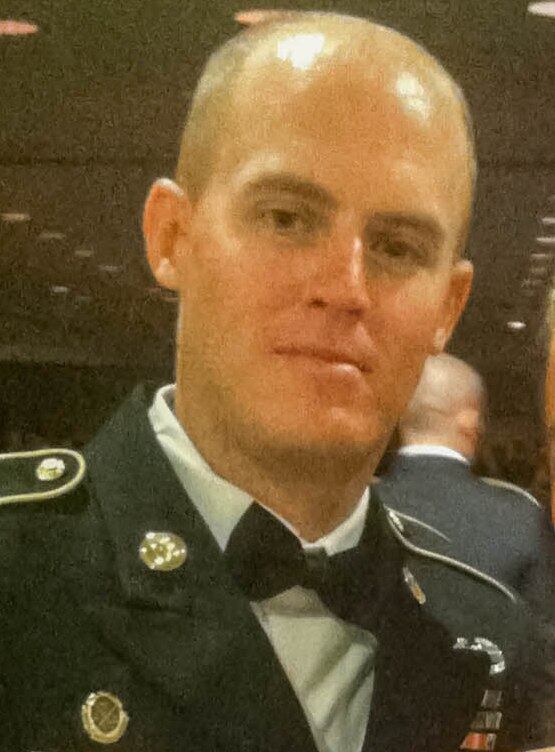When Sgt. Brandon Wegner noticed a surge in soldier DUI arrests at Joint Base Lewis-McChord, Washington, he a little over two years ago. Knowing how lives can be ended and careers ruined by driving drunk – he said his wife has lost two friends hit by drunk drivers – the MP decided to do something about it. After all, hHis wife had lost two friends to drunk drivers, and he had witnessed careers ruined over what he saw as a senseless act.
That was two years ago. Now Wegner, currently Now stationed in Honolulu at Schofield Barracks, Hawaii,  runs a the nonprofit Drunk Driving Prevention Program, which that offers free rides home.
runs a the nonprofit Drunk Driving Prevention Program, which that offers free rides home. He plans to expand the Drunk Driving Prevention Program DDPP to Fort Riley, Kansas, by the end of February, and to Fort Drum, New York, by May 1.
He plans to expand the Drunk Driving Prevention Program DDPP to Fort Riley, Kansas, by the end of February, and to Fort Drum, New York, by May 1.

Sgt. Brandon Wegner
Photo Credit: Courtesy photo
Wegner, who serves in the 13th Military Police Detachment, 728th MP Battalion, 8th MP Brigade, said the service in Hawaii averages about five rides a night, though that while some nights are busier than others, on average nights his service in Hawaii provides about five rides each night.
He caps volunteers for each night at 20 drivers, and goes down the call list to find someone that can make the trip. Drivers can be dispatched as two-person teams in order to also drive the participant's car home, if needed.
Drivers can be dispatched as two-person teams in order to also drive the participant's car home, if needed. Any resident of the island of Oahu Hawaii, (or a 30-mile radius of a DDPP office for future mainland chapters) can join, according to his site. Participants do not need to be military.
Any resident of the island of Oahu Hawaii, (or a 30-mile radius of a DDPP office for future mainland chapters) can join, according to his site. Participants do not need to be military.
Stated hHours of operation are 10:30 p.m. to 3:30 a.m. on Fridays and Saturdays.
Riders register online (www.ddpp.us) and have to sign a waiver before taking their first ride. They may be breathalyzed, but only to ensure they don't have a blood alcohol content of .28, a level they see as view a BAC that high to be an immediate health threat, so the rider would be taken to the hospital.
They may be breathalyzed, but only to ensure they don't have a blood alcohol content of .28, a level they see as view a BAC that high to be an immediate health threat, so the rider would be taken to the hospital. 
Wegner stressed the privacy protection of being outside the chain of command.
"We're a private organization; the Army can't say 'show me your records of who got picked up,'" Wegner said. "The Army is not liable for anything we do. We have our own general liability insurance."
DDPP gave its first ride in October 2013, and the organization now has 168 volunteers in Hawaii
and the organization now has 168 volunteers in Hawaii some riding and driving more sporadically than others. He said he needs 20 volunteers to start a program in a new location,
some riding and driving more sporadically than others. He said he needs 20 volunteers to start a program in a new location, which he's accomplished at in Fort Riley.
which he's accomplished at in Fort Riley.
"It's a great thing to have. Especially being in the military, being able to watch over our battle buddies and keep everybody safe," said Spc. James Finch , a fellow MP recruited almost a bit less than a year ago by Wegner.
, a fellow MP recruited almost a bit less than a year ago by Wegner.
Finch said drivers vary not only by in MOS but by branch; Air Force and Navy members also participate.
"I haven't had any problems (with riders). Everybody's been really appreciative," Finch said. "Sometimes a person has volunteered through DDPP before, and they'll talk about how great it is."
Spc. Albert Morin , another MP at Schofield, said even before joining DDPP in August, he often served as a designated driver for friends. The Brooklyn native said he likes that this provides a way for soldiers to help soldiers to stay out of trouble. Before he started, he had concerns there might be of unruly riders, but that they didn't bear out.
, another MP at Schofield, said even before joining DDPP in August, he often served as a designated driver for friends. The Brooklyn native said he likes that this provides a way for soldiers to help soldiers to stay out of trouble. Before he started, he had concerns there might be of unruly riders, but that they didn't bear out.
"For the most part, it's been pretty non-eventful," Morin said. "When I first started, I was skeptical that you'd get a lot of people that are rude. Everyone for the most part has been polite. That's made me want to keep doing the program."
Background checks on drivers help ensure riders have a safe ride, Wegner said.
To protect both rider and driver, he also said drivers aren't allowed to enter a participant's residence. Waivers took care of liability, and the breathalyzer ensured someone in need of medical attention from heavy drinking would not be left on their doorstep.
Waivers took care of liability, and the breathalyzer ensured someone in need of medical attention from heavy drinking would not be left on their doorstep.
"We haven't had any incidents," Wegner said. "There was a lot of planning, talking to other designated driver services."





